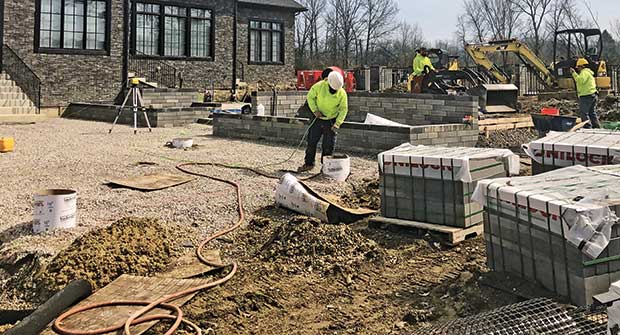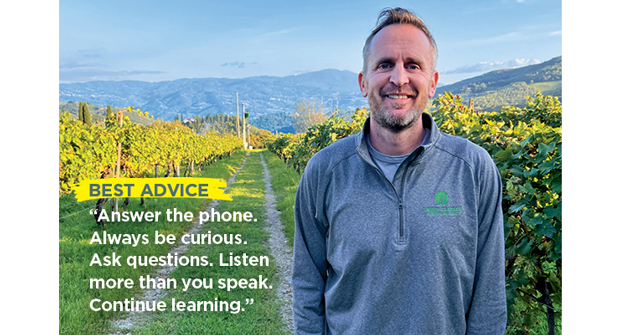4. Develop the right processes
As a business grows, having easily replicable standard operating procedures (SOPs) in place helps ensure clients will have the same experience with every employee in the company.
“In my mind, when I take a look at a system, it’s a way of doing something,” Bourque says. “The best way is to have a written step-by-step process that anyone can learn, understand and repeat.”
Deemer and Murray have put a lot of time and energy into developing systems and processes.
“Everything, including how we build a standard retaining wall and how the crew receives the resources for that job, can be found on our Google Drive in our systems area,” Deemer says.
Before implementing a new system or process, Deemer and Murray say they work with their team to give it a test run before it becomes an official process. The ultimate goal they have for their business is to develop a SOP for everything Local Roots does. They say this not only has a good effect on how Local Roots is run, but it also shapes the experience their clients have with the company.
“Here’s what it’s like working with Local Roots, and we know you’re going to have the same experience every time,” Deemer says of the benefits of systems to his clients.
Deemer and Murray also see the systems as an important way for them to
delegate responsibilities to their team members.
“Having systems and processes so that we could make sure things were being run the way we wanted them run, we could keep company standards and quality standards without being directly involved,” Deemer says.
5. Educate your staff
Griffin says educating the crew is an absolute must when trying to grow a hardscape business. Prime Lawn’s business, which serves primarily residential clientele and offers design/build and irrigation services, has remained steady and grew about 5 percent last year.
“You can’t have a foreman who knows everything and a crew who knows nothing,” he says. “That’s really a key; it’s the knowledge. You have to keep your crew updated on new processes. You have to train them.”
Griffin and NeSmith say they pull crews together on a rainy or off day to talk about things they’ve learned.
“We bring out the whiteboard and go over the basics: how you excavate, how you stage a project, how many inches of base material is required under a paver driveway versus a paver walkway,” says NeSmith, noting he’ll often quiz crew members on what they’ve learned and then take them out to lunch as a reward.
“(This shows) that knowledge is valued to me and the company,” he says.
NeSmith says he spends a lot of time working with his crews to ensure proper installations. He holds Interlocking Concrete Pavement Institute certifications and National Concrete Masonry Association certifications, and he says he has high expectations for his crews.
“(I spent) more than a year or two of saying ‘Hey, you did this wrong, I want you to undo it and do it right,’” he says, adding he is willing to take the hit of an extra day on the site and the extra cost to make sure things are done the NeSmith way. He says he’ll often hear long-time employees correct newer employees on installation by saying “Hey, that ain’t going to fly here.”
NeSmith says now is a good time to get proper training for yourself and your team. Hardscape North America and suppliers like Techo-Bloc, Belgard and Unilock offer virtual classes and webinars, so there are no excuses for not being educated.
“Everything’s at your fingertips now, so why not do it?” NeSmith says.


